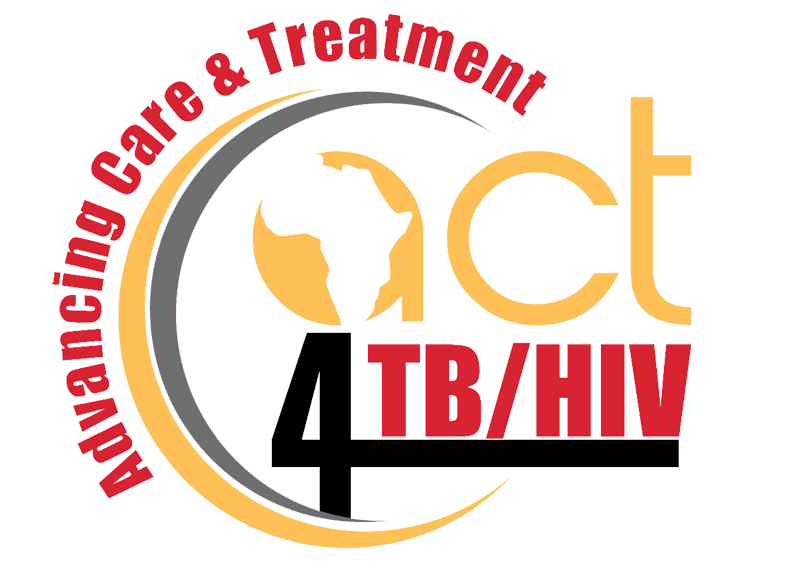What we do
All collaborators have demonstrated the ability to conduct the following types of research, either independently or with collaborators: i) observational research cross-sectional and cohort studies; ii) interventional studies; iii) individually-randomised clinical trials; iv) cluster-randomised clinical and interventional trials; v) qualitative and behavioural research studies; vi) economic evaluations; vii) laboratory-based studies; and viii) modelling studies.
We have a large existing TB/HIV implementation programme which Prof Churchyard and Dr Charalambous aim to evaluate innovative, simple, scalable, cost effective interventions that can contribute to TB/HIV integration and improve adherence using mHealth solutions and case managers.
Prof Churchyard will co-lead trials to evaluate new treatment shortening regimens for drug susceptible TB as well as lead/co-lead two therapeutic TB vaccine trials evaluating ID93 and H56/IC31; Aurum and collaborators are exploring leading the South African development of a heat killed MTB vaccine (RUTI, Archival Farma) and a new multi antigen, lentiviral vector TB vaccine developed by the Pasteur Institute. Churchyard is leading a multi country evaluation of levofloxacin for treatment of presumed latent TB infection with MDR TB among MDR TB exposed household contacts and a novel strategy of annual short course TB preventive therapy for HIV-infected adults.
He will lead the HVTN109 trial evaluating various combinations of DNA, NYVAC and adjuvants (MF59, ASO1b) in prime boost regimens. Transformative science is essential to advance understanding of the host pathogen interaction and will be embedded into clinical trials and implementation research conducted by the ACT for TB/HIV collaboration.
Dr Charalambous is planning a Treatment as Prevention intervention in prisons in South Africa and a combination HIV prevention intervention in prisons in Zimbabwe. New TB vaccines, drugs and regimens, host directed therapy and diagnostics will be required to reach the pre elimination and elimination phases. Dr Charalambous will lead the evaluation of moxifloxacin based regimens in TB/HIV co infected patients.
Dr Wallis is planning an MDR TB treatment trial evaluating regimen containing, sutezolid in MDR TB patients. Wallis is leading the evaluation of various novel host directed therapies in combination with standard TB treatment on TB patient outcomes in collaboration with Dr Vangu evaluating host responses using PET/CT imaging. Patient non-adherence to TB treatment is an ongoing challenge and solutions may lie in enhancing health professional-patient communication. Wallis is leading the development of a new rapid molecular diagnostic for emerging drug resistance.
Dr Penn will focus on developing, implementing and measuring the impact of a communication skills training programme for healthcare teams to reduce stigma and improve patient adherence to TB treatment.
Mr Suliman Minty, who is CEO of CLS, will conduct routine TB and HIV laboratory investigation done as part of the consortiums research programme. An effective HIV vaccine is South Africa’s best hope of controlling the HIV epidemic.
Young women in South Africa bear the greatest burden of HIV and finding efficacious vaginal microbicides is a critical part of a combination prevention strategy. The Aurum Institute has a long track record of conducting HIV vaccines and microbicide trials.
Professors Churchyard and Kana have been studying the role of resuscitation promoting factors (Rpfs) in TB disease pathogenesis and reactivation from dormancy. Kana and Churchyard propose to study the physiology of viable but non-culturable tubercle bacteria in HIV infected and uninfected TB patients and to expand their collaboration to assess drug tolerance in RPFd bacteria and to gain insight into some of the clinical phenomena associated with TB Disease.
Dr Ismail, who is director of The Centre for TB at the NICD will continue active MDR TB surveillance in 4 districts in South Africa (Kenneth Kaunda, Ehlanzeni, NMM and Francis Baard districts) and will continue to collaborate with Churchyard in the evaluation of an automated AFB microscopy system and will study the molecular epidemiology and drug resistant conferring genetic mutation of TB isolates from clinical and interventional research studies conducted by the consortium.
Drs Ndung’u, Edward and Maenetje will continue to collaborate to study HIV pathogenesis and vaccine induced immunogenicity.
Dr Maenetje will lead the evaluation of αβ and γ9δ2 T cell responses in protecting against TB infection among household TB contacts. Churchyard in partnership with Charalambous, Wallis and Maenetje will lead a study evaluating epidemiological and transcriptomic factors associated with a highly TB exposed, persistently negative phenotype in miners. Understanding how HIV alters TB immunity in the lung it is particularly important because immune cells in the lungs are the front-line defence against TB. These cells represent ideal targets of novel vaccination strategies.
Dr Ndung’u will address the question of whether the production of Type 1 IFN and downstream products by HIV-infected macrophages result in lung-specific alterations to the immune environment.
Furthermore, we will address whether HIV infection causes specific changes in the alveolar environment that result in dysfunctional innate, T and B cell immunity against TB. We will also investigate whether the lung microenvironment represents a unique compartment and reservoir site for HIV replication as well as to ensure a sustainable programme of research it is essential to build research capacity. All Investigators have a track record of developing capacity of early stage investigators.
